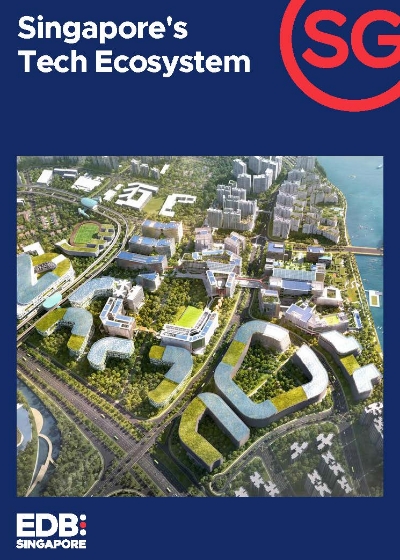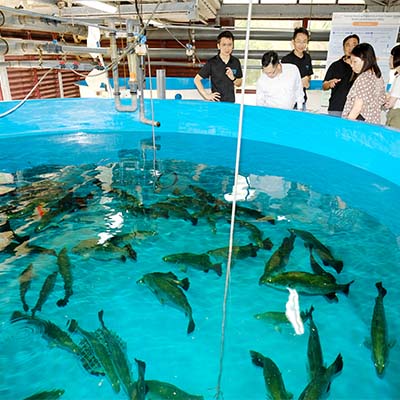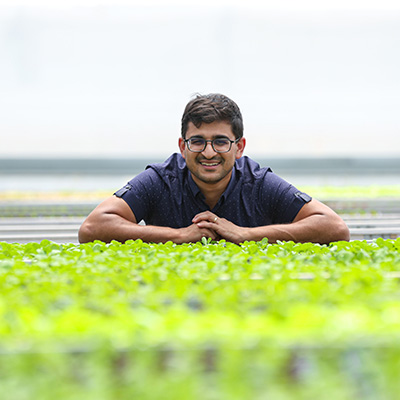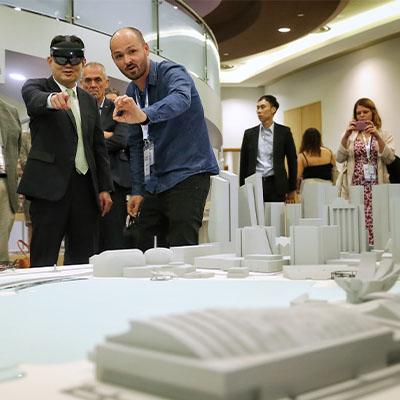"These substances are part of what is known as the muscle 'secretome' and are necessary for the growth, survival and development of cells into tissues," said Prof Franco-Obregon.
The NUS team's research was published in scientific journal Biomaterials in August.
"Instead of relying on animal blood to provide factors that stimulate the multiplication and development of muscle cells, an electro-magnetic field does so by directly causing the muscle cells themselves to secrete these same factors, which then similarly promotes muscle cell development - self-sufficiently," said Prof Franco-Obregon, who has been researching the use of magnets to enhance muscle growth and function for a decade.
A 10-minute exposure of these cells to pulsing magnetic fields can cause them to multiply better and survive longer than the outcome of adding animal serum to cells, he added.
The technology has already been applied by NUS in regenerative medicine.
Another team led by Prof Franco-Obregon found that energy produced via magnetic stimulation can "trick" human muscle cells into thinking that they are exercising, hence activating them to adapt and improve at an accelerated speed.
Responding to concerns over the impact that magnets might have, Prof Franco-Obregon said the non-ionising magnetic fields used to culture meat are of a low-energy range and, like gravity, are ever present and necessary for survival.
He added: "The earth's electromagnetic field and gravity are always present, which is why we never notice them. But, both forces are absolutely essential for normal development and growth.
"This is one of the principal reasons why astronauts lose muscle and bone while away from the earth."
This new technique is a greener, cleaner, safer and more cost-effective way to produce cell-based meat.
While NUS has demonstrated the positive effects of applying pulsed magnetic field on cell proliferation, further investigation is needed before this technology can be used for cultivated meat, said Professor William Chen, director of Nanyang Technological University's (NTU) Food Science and Technology programme.
Researchers would need to replicate magnetic-induced growth over a longer period as cultivated meat production takes more than a few hours to achieve sizeable muscle biomass, he said.
They would also need to understand the long-term impact of applying a pulsed magnetic field, he said, noting that if the cells are used for meat production and need to be regularly stimulated, changes to cell DNA may need to be monitored.
So far, electro-magnetic fields in the non-ionising part of the electromagnetic spectrum cannot damage DNA or cells directly and studies of animals have not provided any indication that these fields are associated with cancer, according to the United States' National Cancer Institute.
Said Prof Franco-Obregon: "Cost-wise, it's just building a bioreactor that requires an initial investment of between $20,000 and $30,000, unlike serum or other drugs for growth that need to be reproduced each time they are used up."
A patent has since been filed for the NUS team's technology, and the university is currently in discussion with potential industry partners to commercialise it.
Singapore became the first country to approve the sale of a cell-cultured meat product - chicken bites by start-up Eat Just - in December 2020, after the authorities determined that it was safe for consumption.








